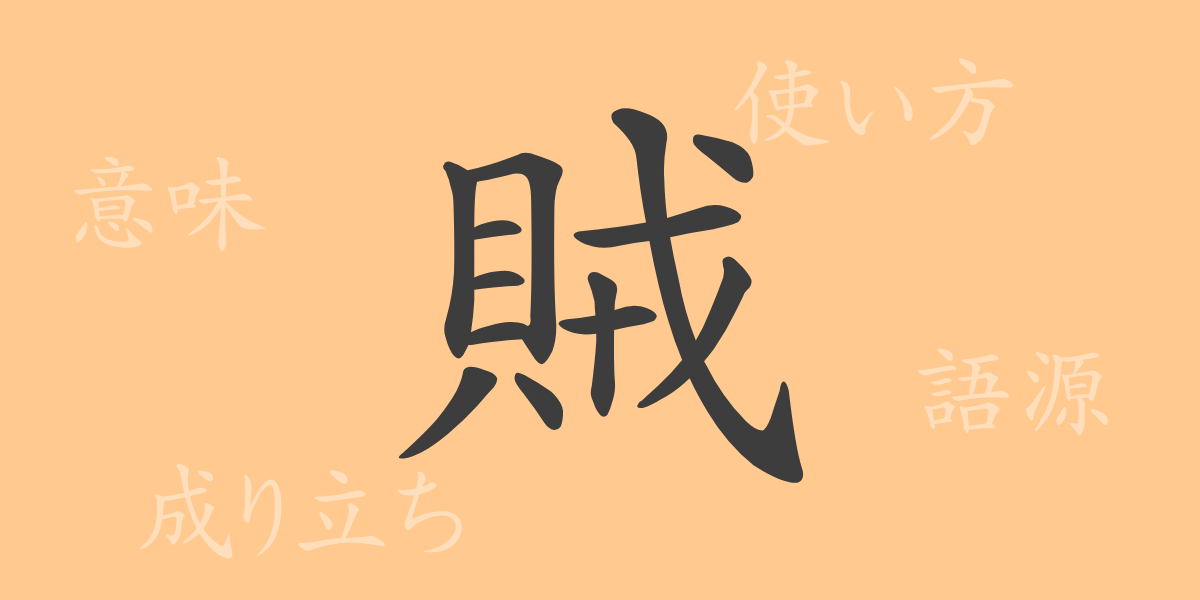Kanji, deeply embedded in Japanese culture, each holds profound meanings and history. “賊” (ゾク) (zoku), although less commonly used in everyday conversation, leaves a significant impression in specific contexts like history, literature, and cinema. This article delves into the etymology, contemporary usage, and related phrases and proverbs of “賊,” uncovering its allure.
Origin of “賊” (zoku)
The Kanji “賊” traces back to ancient China. Originally representing the act of taking “財” (wealth), its form combines “貝” (shell, symbolizing wealth) and “戎” (weapon or foreign enemy), indicating those who plunder others’ wealth, hence, used to mean a thief or bandit.
Meaning and Usage of “賊” (zoku)
In modern Japanese, “賊” predominantly conveys negative connotations such as a thief or someone who does harm. Broadly, it also implies a “harmful person,” varying in nuance depending on the context. In political terms, it may refer to rebels or opposing forces as “賊”.
Readings, Stroke Count, and Radical of “賊” (zoku)
The essential details of the Kanji “賊” are as follows:
- Readings: On’yomi “ゾク”, no specific Kun’yomi.
- Stroke Count: 13 strokes
- Radical: 貝 (かいへん) (kaihen)
Phrases and Proverbs Using “賊” (zoku) and Their Meanings
Many idioms and proverbs incorporate “賊,” each with unique meanings and uses. For example, the proverb “盗人猛々しい” (a thief acts boldly) teaches that people often act boldly to hide their faults. The phrase “賊を捕らえて王を縛る” (catch a thief to tie a king) means capturing a minor evil to control a greater one. These reflect the profound meanings and richness of expression in the Japanese language.
Conclusion on “賊” (zoku)
The Kanji “賊” has undergone many transformations from ancient times to the present. While it predominantly carries negative implications, the idioms, proverbs, and sayings involving “賊” encapsulate deep lessons and insights into human behavior and psychology. For learners of Japanese and those interested in the cultural and linguistic background of Japan, understanding expressions containing “賊” is incredibly valuable.

























